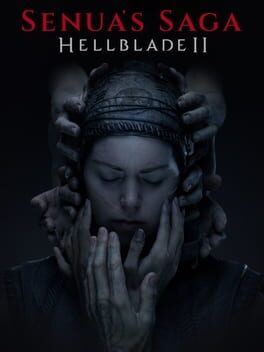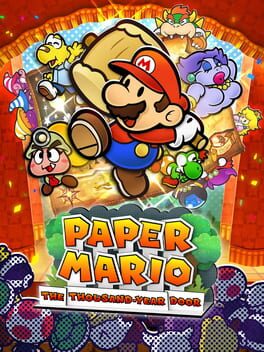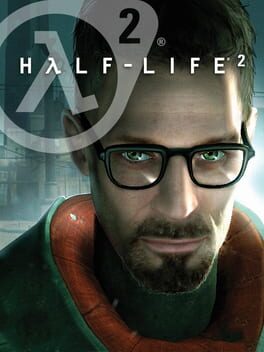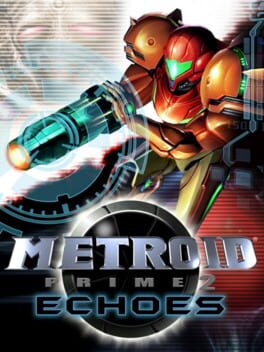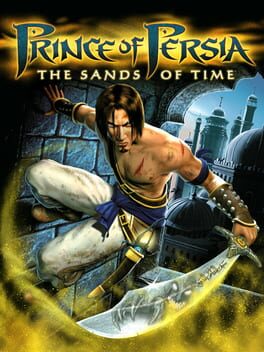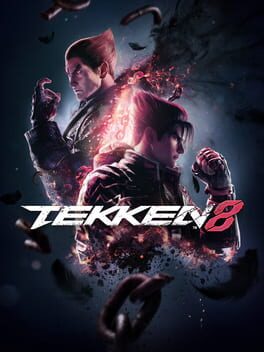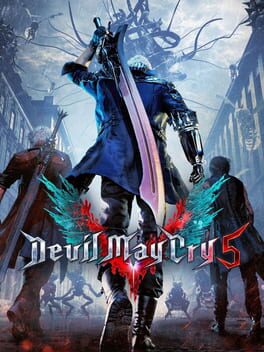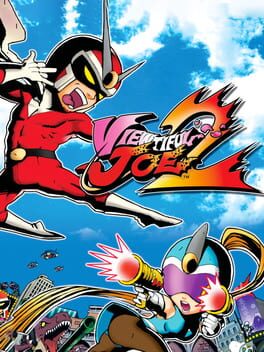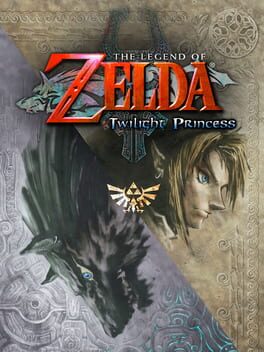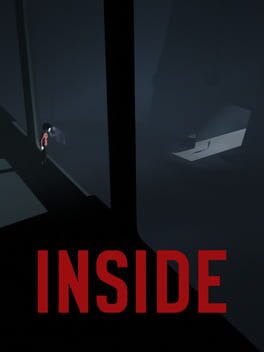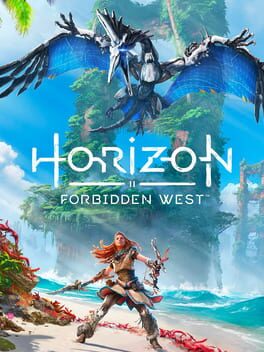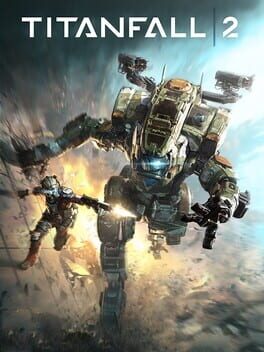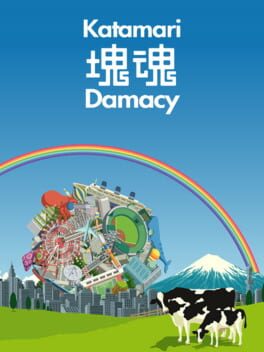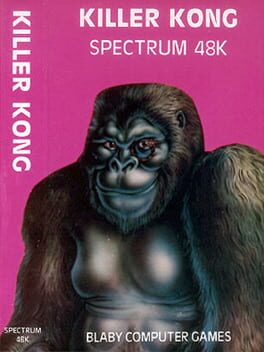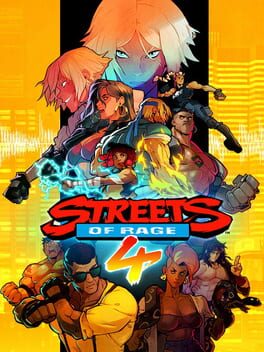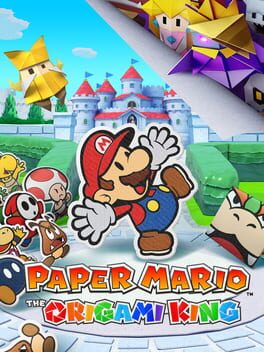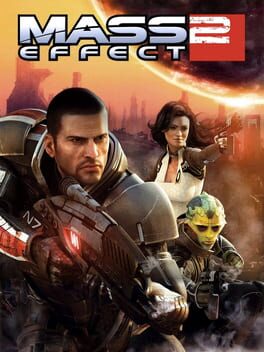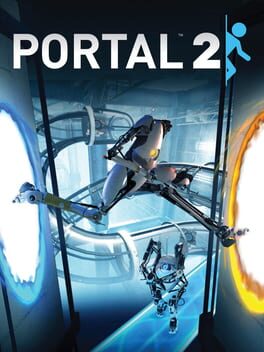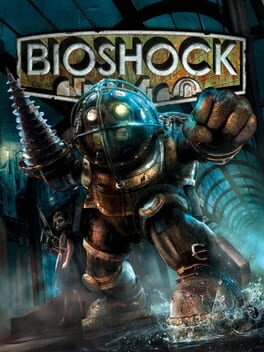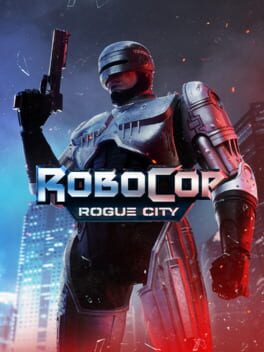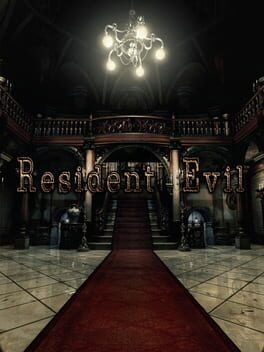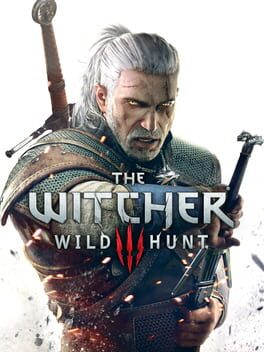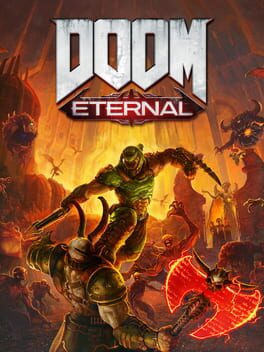Guntor
204 reviews liked by Guntor
Senua's Slugfest: Hellbruh II
Man, this was such a let down for me that it's almost hard to put into words. Senua's Sacrifice back in 2017 was one of the neater gaming experiences I've had in recent years, a fantastic dive into the Celtic mythos coupled with a passionate tale of the general scorn and abandonment that those who suffer from mental illness have suffered for a heartbreaking amount of time. Even though it was largely basic in terms of gameplay, I felt like there was enough agency in movement and originality in the story to keep me going. Overall I gave it a four out of five stars, because the scant gameplay couldn't bog down what the message of the game set out to offer.
Senua's Saga however took the concept of the first game and somehow turned it into a numbing tech demo with a runtime almost insulting for the price its offered at. I played this on Game Pass, but saw it was lifted as $50 on retail websites, and even then it's not worth it. It feels like 75% of the gameplay loop of Hellblade II is walking through fantastically designed, yet unfortunately monotonous environments, at snail speed as voices speak into your character's ears. Trot, trot, trot you do with very little in the way of worldbuilding or interesting conversation with your party members. A story is there but its told in such a jolted and lazy fashion that I couldn't be bothered to piece things together. The other quarter of the game is boiled down to brainless puzzles that revolve around pushing the trigger buttons to open up pathways, and then combat that is so incredibly one note and boring that you could very realistically fall asleep while playing. Dodge, attack, dodge attack... ooh an npc runs into the enemy you're fighting and stabs them, but is killed by a NEW enemy... no way? Rinse and repeat that a million times until completion. Everything is boiled down to the same recycled one on one fight, sometimes the enemy has a different appearance, but every single one plays the exact same. I like to believe this was better in the 2017 title but man, I don't have the heart to know.
Hellblade II is a lazy glorified tech demo. It's beautiful and the cutscenes are something special, but you are missing absolutely nothing by skipping this game. For a game that was paraded as a flagship title for Xbox in the current generation, Senua's Saga is quite telling of Microsoft's gaming offering. Starfield, Senua's Saga, Halo Infinite... all have been so impressively garbage that they're being lapped by everyone else when it comes to putting out compelling video games. I'm not sad, I'm just incredibly disappointed. If you want good games in the creepy linear walking sim genre, just play the Plague Tale titles, at least those have something going for them.
Man, this was such a let down for me that it's almost hard to put into words. Senua's Sacrifice back in 2017 was one of the neater gaming experiences I've had in recent years, a fantastic dive into the Celtic mythos coupled with a passionate tale of the general scorn and abandonment that those who suffer from mental illness have suffered for a heartbreaking amount of time. Even though it was largely basic in terms of gameplay, I felt like there was enough agency in movement and originality in the story to keep me going. Overall I gave it a four out of five stars, because the scant gameplay couldn't bog down what the message of the game set out to offer.
Senua's Saga however took the concept of the first game and somehow turned it into a numbing tech demo with a runtime almost insulting for the price its offered at. I played this on Game Pass, but saw it was lifted as $50 on retail websites, and even then it's not worth it. It feels like 75% of the gameplay loop of Hellblade II is walking through fantastically designed, yet unfortunately monotonous environments, at snail speed as voices speak into your character's ears. Trot, trot, trot you do with very little in the way of worldbuilding or interesting conversation with your party members. A story is there but its told in such a jolted and lazy fashion that I couldn't be bothered to piece things together. The other quarter of the game is boiled down to brainless puzzles that revolve around pushing the trigger buttons to open up pathways, and then combat that is so incredibly one note and boring that you could very realistically fall asleep while playing. Dodge, attack, dodge attack... ooh an npc runs into the enemy you're fighting and stabs them, but is killed by a NEW enemy... no way? Rinse and repeat that a million times until completion. Everything is boiled down to the same recycled one on one fight, sometimes the enemy has a different appearance, but every single one plays the exact same. I like to believe this was better in the 2017 title but man, I don't have the heart to know.
Hellblade II is a lazy glorified tech demo. It's beautiful and the cutscenes are something special, but you are missing absolutely nothing by skipping this game. For a game that was paraded as a flagship title for Xbox in the current generation, Senua's Saga is quite telling of Microsoft's gaming offering. Starfield, Senua's Saga, Halo Infinite... all have been so impressively garbage that they're being lapped by everyone else when it comes to putting out compelling video games. I'm not sad, I'm just incredibly disappointed. If you want good games in the creepy linear walking sim genre, just play the Plague Tale titles, at least those have something going for them.
NieR: Automata
2017
Metroid Dread
2021
"Don’t worry… I’ll end this. Once and for all."
A welcome return to form, with some of the smoothest 2D action platforming one would dream of a new Metroid playing like. Dread mostly plays out like a greatest hits album for the Metroid series but given the gaps between Fusion & now it seems only fair to reintroduce veterans and recruits of the series here. I think from here on out I hope the next 2D game comes sooner rather then later and they take some new directions in the design, mechanics and settings going forward. To my surprise getting a true sequel to Fusion was unexpected and led to some incredibly satisfying payoffs to the previous games and the final moments go unreasonably hard. Still not a huge fan of 2.5D style games and parts of Dread look pretty rough at points in comparison to its legacy titles but this is probably the best use of the dimension I've played at this time. Here's hoping for a bright future for the series going forward and Prime 4 isn't just vaporware collecting dust inside Nintendo HQ at this time.
A welcome return to form, with some of the smoothest 2D action platforming one would dream of a new Metroid playing like. Dread mostly plays out like a greatest hits album for the Metroid series but given the gaps between Fusion & now it seems only fair to reintroduce veterans and recruits of the series here. I think from here on out I hope the next 2D game comes sooner rather then later and they take some new directions in the design, mechanics and settings going forward. To my surprise getting a true sequel to Fusion was unexpected and led to some incredibly satisfying payoffs to the previous games and the final moments go unreasonably hard. Still not a huge fan of 2.5D style games and parts of Dread look pretty rough at points in comparison to its legacy titles but this is probably the best use of the dimension I've played at this time. Here's hoping for a bright future for the series going forward and Prime 4 isn't just vaporware collecting dust inside Nintendo HQ at this time.
Extremely solid remake of one of the best games of all time. I'm one of those freaks who prefers when game remakes are their own thing, allowing the original to stand by themselves. Like if someone asks, "Which version of this game should I play?" I want the answer to be "Both!" (The Final Fantasy VII Remake is probably the best example of this phenomenon. A lot of weird new stuff for fans but still accessible enough for newcomers.) But here, you're probably better off just playing the TTYD remake. The original game has 60 FPS and is just generally a little snappier. But that's really it. The remake has: way more expressions for every single character (which adds SO MUCH charm to an already cheery game), cool remixes with the option to listen to the original soundtrack, a couple of new things for veteran players to mess around with, super clean visuals with some neat new lighting, and most importantly: back sprites for the Partners!
Even if the game does make going back to the original harder, it's just such a great time overall that I'm fine with it. Would absolutely LOVE if this causes the Paper Mario series to go back to its roots with any future games, but I'm not holding my breath. I also would be interested in a N64 remake that gets a little freakier with what it changes, since I think that game currently stands on its own visually.
Even if the game does make going back to the original harder, it's just such a great time overall that I'm fine with it. Would absolutely LOVE if this causes the Paper Mario series to go back to its roots with any future games, but I'm not holding my breath. I also would be interested in a N64 remake that gets a little freakier with what it changes, since I think that game currently stands on its own visually.
BioShock Infinite
2013
what if… racism was bad? but what if… hating racism too much… was also bad? wish roger ebert was here to see this… he’d understand just how Important this game is
…I guess, on that point, it’s always interesting to me what games get put on a pedestal — what, according to Gamers, ‘proves’ that games can be art. Every few years it always seems like something comes out that’s immediately lauded for pushing the medium forward, for being more than just something where you press the buttons to run and jump, for really showing just what gaming can be… and they’re usually all triple-A western franchise titles, exorbitantly priced, and being touted as such by more mainstream publications — the ones that don’t generally cover games that don’t have a marketing budget or pre-existing hype behind them. No judgment towards any of those games, of course, I’ve yet to play any of them, but it seems as if the argument is more as to whether mainstream games can be art — whether or not we can make Roger Ebert a Gamer. There’s so many cool games out there that, to some extent have already proved what this medium is capable of, but to some extent, it's always been a measure of self-validation more than it’s ever been a desire to broaden one’s horizons. It’s kind of like those weird Gaylor Swift conspiracy theorists: why listen to an actual LGBT artist when I can instead pretend my favourite white woman actually stands for something? Why leave my comfort zone when I already have the validation I want?
What personally bugs me is that a lot of what gets pushed forward as 'prestige,' I feel, doesn’t truly take advantage of what the medium truly offers, or, as is often the case, are actively scared of letting you actually play the game. There are so many cool things you can do, so many ways you could use game mechanics or ludonarrative to illustrate or underline a thematic point, but so many of these Elevated games instead feel like they’re going for things that movies can already do, and I feel like that’s leaning in the wrong direction as to what can, honestly, feel profound. Just as an off-the-cuff example, the final choice of Ace Attorney: Justice For All asks whether you, as the defense, plead your client as guilty or innocent. Do you believe in protecting your client, or protecting the innocent? Do you exact (relative) mercy on somebody who’s wronged you? Or do you subject them to the monkey’s paw-esque fate they've more than had coming? Which of those is truly just? It’s not a choice that matters — the scene plays out the same regardless of what you pick — but in this sense the option you choose exposes something of you, the player: what you value, and what you, personally, have taken out of everything that’s just happened. You have to choose — the scene doesn’t move forward until you do — and in that sense, it's something that could only be done within an interactive medium: you are directly made to engage with the text, you are directly made to provide your own interpretation of its thematic content. BioShock Infinite does something similar within its first hour, and the question asked is just as profound: are you racist? Or are you not racist?
…I don’t think it’s really going to be possible to talk about BioShock Infinite without talking about… all that, huh?
sigh
I have to begin this with a disclaimer, I guess: I’m white, I don’t think I’m entirely equipped to be talking about this, but the guy who wrote this is also white so maybe, actually, I’m just as qualified to at least try. This game thinks it's making this grand, profound statement about how racism is bad — and how the ‘good old days’ of the U.S, as is the visual aesthetic of Columbia, was built on the abuse and discrimination of the non-whites and immigrants — yet fails to back that up at every turn. For as loudly as it says it, it doesn’t feel like it has much to actually say, with most of its observations feeling so so, surface level. What does the game define ‘racism’ as, anyway? Is it the mere act of an individual discriminating against another on the basis of their race, or is it the systemic act of providing opportunities and benefits to one group over others? Is this society meant to be based off of the pre-emancipation era of the United States, the ‘separate but equal’ segregation that preceded the civil rights movement, or one of the periods in-between? Is there anything that can be said about how white supremacy movements are still prevalent today? Is there anything worth mentioning in how almost all the enemies during the first half of the game are cops? I wouldn’t know: the game doesn’t seem particularly interested in actually going in-depth on the topic, feeling like it’s merely taking a brave stance of ‘racism was bad’ and expecting that to be enough.
And it’s frustrating because it often feels like the game is on the cusp of saying something actually potent… right before it veers away without fully committing to it. You start the game in a church, it becomes clear that Columbia is very much a fundamentalist state. You could maybe lean into how most fundamentalists will misquote or selectively take from the Bible to justify their bigotry, or maybe even go into how the church was often used to subjugate and control colonized peoples… or you could simply treat this the same way the racism is treated in general: very surface level, religious fundamentalism is bad because religious fundamentalism is bad and because using religious words like 'our prophet' and 'messiah' to surround your bad guy is subversive and creepy. Early on, after rescuing Elizabeth, you’re sent to a beach area, you get to mingle, and you learn that the segregation discriminates against the Irish, as well. You could use this to maybe go into the historical mistreatment of Ireland, maybe show how these fascist systems will keep moving the goalposts until those at the very top of their hierarchy remain… or you could just, like, never really bring it up again. That works too. Later on, you go into a museum, you find out that the justification for this discrimination is that the founder/prophet of Columbia lost his wife because the labor underclass rose up and killed her and this could be so fascinating and a window of the paradox in how fascist systems treat women: both as one of the defacto ‘inferiors’ to be subjugated… yet at the same time the madonna figure, whose innocence must be protected, and who through this comes the justification to commit atrocities against the other inferiors. The game is on the cusp of realizing this with Elizabeth — being locked up in a gilded cage, being forbidden from interacting with the outside world, yet also being a literal symbol, both the justification and continuation of this totalitarian system — and then this is all just thrown to the wayside because the story wants her to be Cute and Quirky. Every time this story stumbles on something it could actually say it decides it doesn’t feel like doing so. It wants credit for taking the stance it does but never actually wants to get its feet in the muck. And here I thought art was meant to alienate. Silly me.
(also… I feel like if you’re at least trying to condemn racism I don’t think it’s a great idea to have the only defined asian characters be speaking in broken English? again, white guy over here, I don’t want to make assumptions on things I don’t know well about, but, like, maybe not the time and place?)
I mean, I guess it’s trying to be anti-racist. I think that’s what it’s trying to be. I mean I’m not as confident as I was initially because holy shit does the game fucking swerve on its message right at the halfway point. See, by opposing the forces of Columbia, you eventually come into contact with a cabal of rebels seeking to overthrow this fascist system. You help them out (but… only because you’re forced to, Booker is rather ‘yeah whatever’ about basically everything other than Elizabeth), and by changing the timeline to give them GUNS you give them the means to meaningfully act out and rise up against their oppressors… to which the game immediately goes “oh no… this protest… is too violent… are these people really all that different from the slave owners?” And then suddenly the rebel leader goes “oh, by the way, something something you’re not the real you, you must die,” the game decides to show she’s actually The Bad Guy by having her try and murder a child, Elizabeth is made to kill her, and Booker’s response, verbatim, is “the only difference between [a racist, totalitarian system] and [trying to overthrow said racist, totalitarian system] is how you spell the name.” Maybe the Vox Populi should’ve just protested peacefully, ala MLK and Ghandi. Maybe we should’ve just voted out Hitler. And- and honestly what’s most wild for me is that this is how the game just fucking forgets that it’s about fascism and racism right after this. You watch Elizabeth shootthe only named black character in the game the rebel leader and the fallout of the scene is pressing F to reassure her that everything’s okay. The rest of the plot that follows is almost exclusively about time travel and alternate dimensions as opposed to anything regarding the rather delicate subject matter the game was attempting to handle earlier. The slavery of this one white woman is more important than the slavery of Columbia’s entire underclass. You shoot down rebel soldiers almost exclusively past this point and neither you nor the narrative bats an eye.
(addendum here: a friend pointed me towards BioShock Infinite’s Wikipedia page and I really just have to share this paragraph here because, like, what the fuck do you mean “the good and bad sides of racism”? what the fuck do you mean you weren’t trying to make a point and were merely trying to be 'accurate for the time'? I’m going to selectively apply death of the author here so that I don’t have to edit everything I just said because, like, jesus dude, I don't think a game has ever made me lose respect for its writer like this)
One last thing before I move on past the story: I’m notttttttt an Elizabeth fan, sorry. She never quite felt real or consistent as a character; more like a manic pixie dream girl, malleable to be whatever is required to facilitate the plot. The moment you meet her is the moment you free her from the gilded cage she’s been trapped in her whole life, and it was the same moment my suspension of belief broke. It feels like Elizabeth has barely any reaction to any of this, no horror at realizing just how large the world around her actually is, no transitional period to actually being outside for the first time in her life, she’s just immediately exuberant, so wide-eyed at everything, unable to stop herself from dancingwith racists as soon as she hears fiddle music. And it comes off like like it’s trying to make her so Cute and Quirky and Lovable and to me it never really worked. Especially when the game pulls absolutely all the narrative beats you’d expect it to. The Liar Revealed bit leading into the Second Act Breakup — where once you get back together and she still doesn’t trust you the game can’t even fucking commit and have her not help you as much during combat because then maybe that’d at least be a fun way this attempt at art could actually remember what medium it’s in. You’ll have an argument that’ll open a (metaphorical) rift between the two of you and then you’ll point at a locked door and she’ll be like “I’ll get that open for you Mr. Booker : ) “ So much of her dialogue — especially once the game decides it wants to be about alternate dimensions and time travel — is so flowery and… honestly, I’d say a bit pretentious in execution, feeling like it’s actively trying to position itself (and a lot of the plot elements here) as complex and smart, thinking that by making it just barely intelligible whoever’s playing it will be like “wow… this is so complicated… and beyond me… this game is so intelligent…” By the way I just love how the game says, verbatim, “[y]ou don’t need to protect Elizabeth in combat[,] she can take care of herself” like it’s some girl power, progressive thing… then all she actually does in combat is throw you items, open doors you can't, let you tear rifts in time to give you things that’ll help you, teleport right near you when you’re not looking like that one Sherlock Holmes game. She’s basically all the things an escort NPC does except I guess making you actually have to escort her would be a point of division among the Gamers. And it very much falls into that trope where a female character primarily exists to bolster their male counterpart, except here they try and dress it up as if it's subversive and feminist. Between that and some of the quips, you could’ve made me think Joss Whedon wrote this.
So, uh, yeah. I’m not particularly into what this game has going narrative-wise. It wants to act as if it’s tackling these huge themes, it thinks it’s profound by doing so, yet at every turn it feels so unwilling to divide, or challenge, or properly stand for something that it veers away from anything interesting it could actually say — let alone how little it does anything with the medium it’s actually in. And- and Jesus I’m still so thrown by how it can’t commit to even going just ‘racism’ is bad, it has to both sides it, it has to please everybody, it’s so scared of alienating that it alienates itself. If this is art, then maybe that speaks to having to go back to art class.
...At least the gameplay’s loosely fun?
Which reveals my position in the debate, I guess. For all I’ve talked about what makes art — and why I feel like sometimes what gets touted as prestige doesn’t quite meet the metric — I don’t really have much of a horse in this race. I’ll be happy to do my best to discuss themes, and I’ll always look at these things as more than just product, but as a writer, as someone who looks at things from that lens, I’ve always personally been more interested in looking at things from a technical lens: the craft, how it’s refined, what works, what could use improvement. And from that lens, BioShock Infinite is… cromulent. I like shooting things. I like the way the game only giving you two guns basically encourages you to vary with what you carry with you — building an impromptu armory from whatever you can scrounge up around you. I’m fond of the ‘vigors’/phasmids/magic spells you can use, how they all help out in different ways. I especially like how this combines with the gear system in a way that lets the player create legit builds: on my end, I eventually ended up with this playstyle where I’d use a vigor to fling myself directly towards an enemy, whereupon I’d create a giant AOE explosion and wipe out whatever cluster of enemies surrounds my target. I also like the way the game… both hews close and veers away from BioShock the series. It has all the hallmarks, all the defining characteristics that made the series what it was, yet it alters or recontextualizes them in a way that makes them feel fresh. Chief among these is the setting — which, while visually rather breathtaking on its own, really works as a companion piece to Rapture, a city in the sky rather than a city in the sea — but there are other things too: the anachronistic covers of 60s-80s songs mirror BioShock 1/2‘s usage of period-accurate music while also working to set up the timey-wimey aspects of the plot. The combat feels exactly like the previous two games, yet the use of more open areas, in addition to mechanics like the skywires and the rifts make it feel much more fluid, much more arcadey than the claustrophobic meat grinder of Rapture. I’m not entirely sure whether it’s a step forward or a step back, necessarily, but it’s certainly an iteration: things have been looked at, tweaked to become brand new… while not losing the same feel they used to have. It’s neat to see in action.
But man, while I’m not somebody who usually likes judging a work for being an adaptation, a sequel, whatever, it is just… rather tragic that a lot of the wrong lessons seem to have been learned from it. The original BioShock, to me, is genuinely so cool in showing just what videogames: silly moral choice system aside, there’s so much going on with ludonarrative, and diegesis, and it feels like every little videogame-logic thing has something going on behind it in a way that contributes to the overall picture. To go from that, to something that has virtually nothing going on mechanically is such a disappointment. And, in turn, when what’s there instead is something that feels like it’s convinced itself of its ascension, that takes real-world sensitive subject matter for the sake of set design and abandons it once it's no longer needed, that mistakes being complicated for being smart, man am I not impressed. It’s funny, honestly, how this loosely ushered the whole era we’re in of prestige, ‘artsy’ games that at the same time seem so afraid of being video games, because it’s BioShock Infinite’s gameplay that makes me hesitate to call it outright bad. It thinks it’s some profound work, some real watershed moment, something that’s really pushing the medium of gaming forward. In reality, it feels much more like Oscar bait. 4/10.
…I guess, on that point, it’s always interesting to me what games get put on a pedestal — what, according to Gamers, ‘proves’ that games can be art. Every few years it always seems like something comes out that’s immediately lauded for pushing the medium forward, for being more than just something where you press the buttons to run and jump, for really showing just what gaming can be… and they’re usually all triple-A western franchise titles, exorbitantly priced, and being touted as such by more mainstream publications — the ones that don’t generally cover games that don’t have a marketing budget or pre-existing hype behind them. No judgment towards any of those games, of course, I’ve yet to play any of them, but it seems as if the argument is more as to whether mainstream games can be art — whether or not we can make Roger Ebert a Gamer. There’s so many cool games out there that, to some extent have already proved what this medium is capable of, but to some extent, it's always been a measure of self-validation more than it’s ever been a desire to broaden one’s horizons. It’s kind of like those weird Gaylor Swift conspiracy theorists: why listen to an actual LGBT artist when I can instead pretend my favourite white woman actually stands for something? Why leave my comfort zone when I already have the validation I want?
What personally bugs me is that a lot of what gets pushed forward as 'prestige,' I feel, doesn’t truly take advantage of what the medium truly offers, or, as is often the case, are actively scared of letting you actually play the game. There are so many cool things you can do, so many ways you could use game mechanics or ludonarrative to illustrate or underline a thematic point, but so many of these Elevated games instead feel like they’re going for things that movies can already do, and I feel like that’s leaning in the wrong direction as to what can, honestly, feel profound. Just as an off-the-cuff example, the final choice of Ace Attorney: Justice For All asks whether you, as the defense, plead your client as guilty or innocent. Do you believe in protecting your client, or protecting the innocent? Do you exact (relative) mercy on somebody who’s wronged you? Or do you subject them to the monkey’s paw-esque fate they've more than had coming? Which of those is truly just? It’s not a choice that matters — the scene plays out the same regardless of what you pick — but in this sense the option you choose exposes something of you, the player: what you value, and what you, personally, have taken out of everything that’s just happened. You have to choose — the scene doesn’t move forward until you do — and in that sense, it's something that could only be done within an interactive medium: you are directly made to engage with the text, you are directly made to provide your own interpretation of its thematic content. BioShock Infinite does something similar within its first hour, and the question asked is just as profound: are you racist? Or are you not racist?
…I don’t think it’s really going to be possible to talk about BioShock Infinite without talking about… all that, huh?
sigh
I have to begin this with a disclaimer, I guess: I’m white, I don’t think I’m entirely equipped to be talking about this, but the guy who wrote this is also white so maybe, actually, I’m just as qualified to at least try. This game thinks it's making this grand, profound statement about how racism is bad — and how the ‘good old days’ of the U.S, as is the visual aesthetic of Columbia, was built on the abuse and discrimination of the non-whites and immigrants — yet fails to back that up at every turn. For as loudly as it says it, it doesn’t feel like it has much to actually say, with most of its observations feeling so so, surface level. What does the game define ‘racism’ as, anyway? Is it the mere act of an individual discriminating against another on the basis of their race, or is it the systemic act of providing opportunities and benefits to one group over others? Is this society meant to be based off of the pre-emancipation era of the United States, the ‘separate but equal’ segregation that preceded the civil rights movement, or one of the periods in-between? Is there anything that can be said about how white supremacy movements are still prevalent today? Is there anything worth mentioning in how almost all the enemies during the first half of the game are cops? I wouldn’t know: the game doesn’t seem particularly interested in actually going in-depth on the topic, feeling like it’s merely taking a brave stance of ‘racism was bad’ and expecting that to be enough.
And it’s frustrating because it often feels like the game is on the cusp of saying something actually potent… right before it veers away without fully committing to it. You start the game in a church, it becomes clear that Columbia is very much a fundamentalist state. You could maybe lean into how most fundamentalists will misquote or selectively take from the Bible to justify their bigotry, or maybe even go into how the church was often used to subjugate and control colonized peoples… or you could simply treat this the same way the racism is treated in general: very surface level, religious fundamentalism is bad because religious fundamentalism is bad and because using religious words like 'our prophet' and 'messiah' to surround your bad guy is subversive and creepy. Early on, after rescuing Elizabeth, you’re sent to a beach area, you get to mingle, and you learn that the segregation discriminates against the Irish, as well. You could use this to maybe go into the historical mistreatment of Ireland, maybe show how these fascist systems will keep moving the goalposts until those at the very top of their hierarchy remain… or you could just, like, never really bring it up again. That works too. Later on, you go into a museum, you find out that the justification for this discrimination is that the founder/prophet of Columbia lost his wife because the labor underclass rose up and killed her and this could be so fascinating and a window of the paradox in how fascist systems treat women: both as one of the defacto ‘inferiors’ to be subjugated… yet at the same time the madonna figure, whose innocence must be protected, and who through this comes the justification to commit atrocities against the other inferiors. The game is on the cusp of realizing this with Elizabeth — being locked up in a gilded cage, being forbidden from interacting with the outside world, yet also being a literal symbol, both the justification and continuation of this totalitarian system — and then this is all just thrown to the wayside because the story wants her to be Cute and Quirky. Every time this story stumbles on something it could actually say it decides it doesn’t feel like doing so. It wants credit for taking the stance it does but never actually wants to get its feet in the muck. And here I thought art was meant to alienate. Silly me.
(also… I feel like if you’re at least trying to condemn racism I don’t think it’s a great idea to have the only defined asian characters be speaking in broken English? again, white guy over here, I don’t want to make assumptions on things I don’t know well about, but, like, maybe not the time and place?)
I mean, I guess it’s trying to be anti-racist. I think that’s what it’s trying to be. I mean I’m not as confident as I was initially because holy shit does the game fucking swerve on its message right at the halfway point. See, by opposing the forces of Columbia, you eventually come into contact with a cabal of rebels seeking to overthrow this fascist system. You help them out (but… only because you’re forced to, Booker is rather ‘yeah whatever’ about basically everything other than Elizabeth), and by changing the timeline to give them GUNS you give them the means to meaningfully act out and rise up against their oppressors… to which the game immediately goes “oh no… this protest… is too violent… are these people really all that different from the slave owners?” And then suddenly the rebel leader goes “oh, by the way, something something you’re not the real you, you must die,” the game decides to show she’s actually The Bad Guy by having her try and murder a child, Elizabeth is made to kill her, and Booker’s response, verbatim, is “the only difference between [a racist, totalitarian system] and [trying to overthrow said racist, totalitarian system] is how you spell the name.” Maybe the Vox Populi should’ve just protested peacefully, ala MLK and Ghandi. Maybe we should’ve just voted out Hitler. And- and honestly what’s most wild for me is that this is how the game just fucking forgets that it’s about fascism and racism right after this. You watch Elizabeth shoot
(addendum here: a friend pointed me towards BioShock Infinite’s Wikipedia page and I really just have to share this paragraph here because, like, what the fuck do you mean “the good and bad sides of racism”? what the fuck do you mean you weren’t trying to make a point and were merely trying to be 'accurate for the time'? I’m going to selectively apply death of the author here so that I don’t have to edit everything I just said because, like, jesus dude, I don't think a game has ever made me lose respect for its writer like this)
One last thing before I move on past the story: I’m notttttttt an Elizabeth fan, sorry. She never quite felt real or consistent as a character; more like a manic pixie dream girl, malleable to be whatever is required to facilitate the plot. The moment you meet her is the moment you free her from the gilded cage she’s been trapped in her whole life, and it was the same moment my suspension of belief broke. It feels like Elizabeth has barely any reaction to any of this, no horror at realizing just how large the world around her actually is, no transitional period to actually being outside for the first time in her life, she’s just immediately exuberant, so wide-eyed at everything, unable to stop herself from dancing
So, uh, yeah. I’m not particularly into what this game has going narrative-wise. It wants to act as if it’s tackling these huge themes, it thinks it’s profound by doing so, yet at every turn it feels so unwilling to divide, or challenge, or properly stand for something that it veers away from anything interesting it could actually say — let alone how little it does anything with the medium it’s actually in. And- and Jesus I’m still so thrown by how it can’t commit to even going just ‘racism’ is bad, it has to both sides it, it has to please everybody, it’s so scared of alienating that it alienates itself. If this is art, then maybe that speaks to having to go back to art class.
...At least the gameplay’s loosely fun?
Which reveals my position in the debate, I guess. For all I’ve talked about what makes art — and why I feel like sometimes what gets touted as prestige doesn’t quite meet the metric — I don’t really have much of a horse in this race. I’ll be happy to do my best to discuss themes, and I’ll always look at these things as more than just product, but as a writer, as someone who looks at things from that lens, I’ve always personally been more interested in looking at things from a technical lens: the craft, how it’s refined, what works, what could use improvement. And from that lens, BioShock Infinite is… cromulent. I like shooting things. I like the way the game only giving you two guns basically encourages you to vary with what you carry with you — building an impromptu armory from whatever you can scrounge up around you. I’m fond of the ‘vigors’/phasmids/magic spells you can use, how they all help out in different ways. I especially like how this combines with the gear system in a way that lets the player create legit builds: on my end, I eventually ended up with this playstyle where I’d use a vigor to fling myself directly towards an enemy, whereupon I’d create a giant AOE explosion and wipe out whatever cluster of enemies surrounds my target. I also like the way the game… both hews close and veers away from BioShock the series. It has all the hallmarks, all the defining characteristics that made the series what it was, yet it alters or recontextualizes them in a way that makes them feel fresh. Chief among these is the setting — which, while visually rather breathtaking on its own, really works as a companion piece to Rapture, a city in the sky rather than a city in the sea — but there are other things too: the anachronistic covers of 60s-80s songs mirror BioShock 1/2‘s usage of period-accurate music while also working to set up the timey-wimey aspects of the plot. The combat feels exactly like the previous two games, yet the use of more open areas, in addition to mechanics like the skywires and the rifts make it feel much more fluid, much more arcadey than the claustrophobic meat grinder of Rapture. I’m not entirely sure whether it’s a step forward or a step back, necessarily, but it’s certainly an iteration: things have been looked at, tweaked to become brand new… while not losing the same feel they used to have. It’s neat to see in action.
But man, while I’m not somebody who usually likes judging a work for being an adaptation, a sequel, whatever, it is just… rather tragic that a lot of the wrong lessons seem to have been learned from it. The original BioShock, to me, is genuinely so cool in showing just what videogames: silly moral choice system aside, there’s so much going on with ludonarrative, and diegesis, and it feels like every little videogame-logic thing has something going on behind it in a way that contributes to the overall picture. To go from that, to something that has virtually nothing going on mechanically is such a disappointment. And, in turn, when what’s there instead is something that feels like it’s convinced itself of its ascension, that takes real-world sensitive subject matter for the sake of set design and abandons it once it's no longer needed, that mistakes being complicated for being smart, man am I not impressed. It’s funny, honestly, how this loosely ushered the whole era we’re in of prestige, ‘artsy’ games that at the same time seem so afraid of being video games, because it’s BioShock Infinite’s gameplay that makes me hesitate to call it outright bad. It thinks it’s some profound work, some real watershed moment, something that’s really pushing the medium of gaming forward. In reality, it feels much more like Oscar bait. 4/10.
Chrono Trigger
1995
A time machine? Look, time travel, the kinda of time travel that you're thinking of, is a scientific impossibility.
It would violate the second law of thermodynamics.
You're talking about regrets, so if you want to ask about regrets, just ask about regrets, and leave all this time-travelling no sense out of it.
- Walter White to Saul Goodman in Better Call Saul S06E13 "Saul Gone"
It would violate the second law of thermodynamics.
You're talking about regrets, so if you want to ask about regrets, just ask about regrets, and leave all this time-travelling no sense out of it.
- Walter White to Saul Goodman in Better Call Saul S06E13 "Saul Gone"
EVERY CHAPTER IN PAPER MARIO TTYD RANKED!
Before we get into the ranking let's talk about the game!
Man oh man what a great remake! After the somewhat disappointing 3D All Stars, I was so excited to see that this was a real remake of a game I loved and not just a port. Although I would of taken a port too!
The presentation is superb, all the characters have new animations that just make me so happy to see. The remixed music is great, there's a ton of new music and if you want you can change it to the original!
There's a bunch of quality of life changes. An easier way to warp from place to place. The backtracking in some chapters has been cut down. One of my favorites was that you can now find hidden star piece panels with the hammer making them easier to find. In fact if you find every star piece in a chapter you can view some concept art. Because of this I ended up doing something I'd never done before, I 100% the game.
I found every star piece, tattled every enemy, found every badge, did every trouble at the trouble center and cooked every recipe. The last one made up the last couple hours of my playthrough but I did it!
Now I'll admit there isn't much brand new content but the fact there is some stuff is enough for me. Hell there didn't even need to be any new content and my rating wouldn't of changed. The other negative I've been hearing is how the game is slower. Now ill admit I noticed it when I started playing but I got over it pretty quick so I really don't think its as big a deal as some people are making it out to be.
With that out of the way lets get into the chapter ranking!
SPOILERS AHEAD
#8 Chapter 2: Honestly there isn't a bad chapter in the game but I've never been a fan of chapter 2. The start of the chapter is just a bunch of running back and forth. Even when you get into the tree dealing with the Punis is just kinda annoying. I do like their designs though. I'm also not a huge fan of Flurrie so her joining you here doesn't do much for me. The chapter boss also isn't the most interesting I wish it was more relevant to the location instead of just being Lord Crump in a mech. Speaking of Lord Crump...
#7 Chapter 7: For the penultimate chapter this one just never did it for me. I like the snowy area of Fahr Outpost but you don't spend a lot of time there before being sent off on a wild goose chase for General White. I do like the humor of hunting the general down but it is a bit tedious. After that its off to the moon which is cool but then its into the dreary metallic X-Naut base. Getting to explore the base we've seen during the Peach intermissions is cool but its novelty doesn't last. The chapter boss this time around while just being an upgraded version of chapters 2s feels way more fitting and is pretty fun.
#6 Chapter 1: A pretty solid start. It follows the classic "oh no this village has been tormented by the presence of an evil being and you, the hero must stop it". In this case the village is Petalburg and the evil presence is the dragon Hooktail. You even get a new party member in Koops who's dad went to fight the dragon but never returned. Hooktail is a great chapter boss with an imposing presence who isn't afraid to pull a few tricks. I really like the trick to beating her too. I honestly don't see much wrong with this chapter I just like the others a bit better.
#5 Chapter 8: I went back and forth a bunch with this chapter and the one I put at #4 so consider them a tie. The final chapter of the game is an epic decent into the Palace of Shadow. You'll use everything you've learned up to this point. Encounter a bunch of bosses that offer a pretty solid challenge, all culminating in one of the best Mario final bosses with the Shadow Queen. I haven't even mentioned how cool the Palace of Shadow is. I always liked how weirdly elegant the whole place looks, it really captures that fallen city theme the game is going for. My only complaint is that this chapter is completely linear, there really isn't much chance for exploration and there's no NPCs to talk to. At the same time though it does add to that isolation and fear of what awaits you in the Palace.
#4 Chapter 4: Now I know I bashed chapter 2 for its running back and forth but here me out. Chapter 4 starts out with a pretty wild plot about a town who's residents are being turned into pigs when the bell tower at the nearby steeple rings. Then after making your way to the steeple and taking out the chapter boss you have your identity stolen and are stuck walking around a shadow of your former self without any of your party members. We also get one of the best party members Vivian in this chapter who joins us and helps us get out identity back. So already the plot of this chapter is better then some of the others, also Twilight Town is one of the coolest locations. Yes the backtracking between the town and the steeple is annoying in the original version but the remake cuts the amount of trips down by giving you a warp pipe back to Twilight Town after your 2nd visit to the Steeple. This does make the chapter feel a little short but id say it improves the it overall.
#3 Chapter 5: This chapter has Flavio in it what more does one need. Okay I'll say a bit more, in this chapter Mario gets stranded on Keelhaul Key after the ship he was on is destroyed. He's not alone though as there was a whole crew on the ship who have made a little makeshift village. I always liked how your basically stuck in the chapter from the moment you start it till you finish it. As you explore the surrounding jungle you get my favorite party member in Admiral Bobbery and not long after that you explore the Pirates Grotto which might just be my favorite dungeon in the game. The chapter boss Cortez also has one of the best designs even if his fight isn't that hard. You even get another boss fight against Lord Crump which is one of his better ones. A cool setting with a bunch of great characters earns it the #3 spot.
#2 Chapter 6: Why would a chapter with very little combat in a turn based RPG end up being this high on the list? By having it on a train and making the plot a mystery. The story of chapter 6 is where all its fun comes from. When you begin you find a letter threatening you with a sticky yummy explosion. From there you team up with the detective penguin Pennington to uncover who left the letter before they can enact their plan. The chapter takes place over 3 days, I always like it when a game does a good job with the passage of time and chapter 6 does just that. Time will pass from day to dusk to night as you solve different mysteries and get to know the other passengers. There is still some combat when the train has to stop on the 2nd day at riverside station and there is a chapter boss who is neat but isn't super involved in the chapter. Even as someone who's played this chapter many times and knows all the solutions I still love my time on the Excess Express.
#1 Chapter 3: Chapter 3 sees Mario visiting Glitzville a city in the sky known for the Glitzpit an arena where fighters come from far and wide to be #1. Realizing the crystal star is on the champions belt Mario enters the competition as The Great Gonzales and fights his way to the top. If that wasn't enough it turns out there's more going on then meets the eye. The story of chapter 3 is my favorite, it takes the mystery elements of chapter 6 but has more fighting as you climb the ranks. You get the Mini-Yoshi as a party member who is one of the coolest as he can be a variety of colors making each playthrough a little more unique. The Chapter boss actually uses the crystal star's power to their advantage which I always found real cool since all the others just have it but don't actually use it. I loved Chapter 3 as a kid and I still love it now as an adult.
So there you have it all the chapters ranked in my opinion. If your curious I also did this for the first Paper Mario game when I logged it last year, so check that out if you're interested! As for this game it was always in my Top 10 and the remake has just done an excellent job keeping it there for years to come!
Before we get into the ranking let's talk about the game!
Man oh man what a great remake! After the somewhat disappointing 3D All Stars, I was so excited to see that this was a real remake of a game I loved and not just a port. Although I would of taken a port too!
The presentation is superb, all the characters have new animations that just make me so happy to see. The remixed music is great, there's a ton of new music and if you want you can change it to the original!
There's a bunch of quality of life changes. An easier way to warp from place to place. The backtracking in some chapters has been cut down. One of my favorites was that you can now find hidden star piece panels with the hammer making them easier to find. In fact if you find every star piece in a chapter you can view some concept art. Because of this I ended up doing something I'd never done before, I 100% the game.
I found every star piece, tattled every enemy, found every badge, did every trouble at the trouble center and cooked every recipe. The last one made up the last couple hours of my playthrough but I did it!
Now I'll admit there isn't much brand new content but the fact there is some stuff is enough for me. Hell there didn't even need to be any new content and my rating wouldn't of changed. The other negative I've been hearing is how the game is slower. Now ill admit I noticed it when I started playing but I got over it pretty quick so I really don't think its as big a deal as some people are making it out to be.
With that out of the way lets get into the chapter ranking!
SPOILERS AHEAD
#8 Chapter 2: Honestly there isn't a bad chapter in the game but I've never been a fan of chapter 2. The start of the chapter is just a bunch of running back and forth. Even when you get into the tree dealing with the Punis is just kinda annoying. I do like their designs though. I'm also not a huge fan of Flurrie so her joining you here doesn't do much for me. The chapter boss also isn't the most interesting I wish it was more relevant to the location instead of just being Lord Crump in a mech. Speaking of Lord Crump...
#7 Chapter 7: For the penultimate chapter this one just never did it for me. I like the snowy area of Fahr Outpost but you don't spend a lot of time there before being sent off on a wild goose chase for General White. I do like the humor of hunting the general down but it is a bit tedious. After that its off to the moon which is cool but then its into the dreary metallic X-Naut base. Getting to explore the base we've seen during the Peach intermissions is cool but its novelty doesn't last. The chapter boss this time around while just being an upgraded version of chapters 2s feels way more fitting and is pretty fun.
#6 Chapter 1: A pretty solid start. It follows the classic "oh no this village has been tormented by the presence of an evil being and you, the hero must stop it". In this case the village is Petalburg and the evil presence is the dragon Hooktail. You even get a new party member in Koops who's dad went to fight the dragon but never returned. Hooktail is a great chapter boss with an imposing presence who isn't afraid to pull a few tricks. I really like the trick to beating her too. I honestly don't see much wrong with this chapter I just like the others a bit better.
#5 Chapter 8: I went back and forth a bunch with this chapter and the one I put at #4 so consider them a tie. The final chapter of the game is an epic decent into the Palace of Shadow. You'll use everything you've learned up to this point. Encounter a bunch of bosses that offer a pretty solid challenge, all culminating in one of the best Mario final bosses with the Shadow Queen. I haven't even mentioned how cool the Palace of Shadow is. I always liked how weirdly elegant the whole place looks, it really captures that fallen city theme the game is going for. My only complaint is that this chapter is completely linear, there really isn't much chance for exploration and there's no NPCs to talk to. At the same time though it does add to that isolation and fear of what awaits you in the Palace.
#4 Chapter 4: Now I know I bashed chapter 2 for its running back and forth but here me out. Chapter 4 starts out with a pretty wild plot about a town who's residents are being turned into pigs when the bell tower at the nearby steeple rings. Then after making your way to the steeple and taking out the chapter boss you have your identity stolen and are stuck walking around a shadow of your former self without any of your party members. We also get one of the best party members Vivian in this chapter who joins us and helps us get out identity back. So already the plot of this chapter is better then some of the others, also Twilight Town is one of the coolest locations. Yes the backtracking between the town and the steeple is annoying in the original version but the remake cuts the amount of trips down by giving you a warp pipe back to Twilight Town after your 2nd visit to the Steeple. This does make the chapter feel a little short but id say it improves the it overall.
#3 Chapter 5: This chapter has Flavio in it what more does one need. Okay I'll say a bit more, in this chapter Mario gets stranded on Keelhaul Key after the ship he was on is destroyed. He's not alone though as there was a whole crew on the ship who have made a little makeshift village. I always liked how your basically stuck in the chapter from the moment you start it till you finish it. As you explore the surrounding jungle you get my favorite party member in Admiral Bobbery and not long after that you explore the Pirates Grotto which might just be my favorite dungeon in the game. The chapter boss Cortez also has one of the best designs even if his fight isn't that hard. You even get another boss fight against Lord Crump which is one of his better ones. A cool setting with a bunch of great characters earns it the #3 spot.
#2 Chapter 6: Why would a chapter with very little combat in a turn based RPG end up being this high on the list? By having it on a train and making the plot a mystery. The story of chapter 6 is where all its fun comes from. When you begin you find a letter threatening you with a sticky yummy explosion. From there you team up with the detective penguin Pennington to uncover who left the letter before they can enact their plan. The chapter takes place over 3 days, I always like it when a game does a good job with the passage of time and chapter 6 does just that. Time will pass from day to dusk to night as you solve different mysteries and get to know the other passengers. There is still some combat when the train has to stop on the 2nd day at riverside station and there is a chapter boss who is neat but isn't super involved in the chapter. Even as someone who's played this chapter many times and knows all the solutions I still love my time on the Excess Express.
#1 Chapter 3: Chapter 3 sees Mario visiting Glitzville a city in the sky known for the Glitzpit an arena where fighters come from far and wide to be #1. Realizing the crystal star is on the champions belt Mario enters the competition as The Great Gonzales and fights his way to the top. If that wasn't enough it turns out there's more going on then meets the eye. The story of chapter 3 is my favorite, it takes the mystery elements of chapter 6 but has more fighting as you climb the ranks. You get the Mini-Yoshi as a party member who is one of the coolest as he can be a variety of colors making each playthrough a little more unique. The Chapter boss actually uses the crystal star's power to their advantage which I always found real cool since all the others just have it but don't actually use it. I loved Chapter 3 as a kid and I still love it now as an adult.
So there you have it all the chapters ranked in my opinion. If your curious I also did this for the first Paper Mario game when I logged it last year, so check that out if you're interested! As for this game it was always in my Top 10 and the remake has just done an excellent job keeping it there for years to come!
Half-Life 2
2004
What is there to talk about Half-Life 2 that hasn't been said thousands and thousands of times? If Half-Life 1 is a fun game that revolutionized the way stories can be told in games, Half-Life 2 simply revolutionized the way games work.
It's almost unbelievable that this was released in 2004, its graphics are frankly surprising to this day, physics are perfect, gameplay is adorable, storytelling is superb (and such a great atmosphere). The only thing I could complain about this, is that I didn't like the ending, but hey, 2 more expansions to go!
It's almost unbelievable that this was released in 2004, its graphics are frankly surprising to this day, physics are perfect, gameplay is adorable, storytelling is superb (and such a great atmosphere). The only thing I could complain about this, is that I didn't like the ending, but hey, 2 more expansions to go!
Similar formula to its predecessor, tighter more fragmented Legend of Zelda dungeon based exploration progression with a emphasis on a darker tone.
I'm really fascinated by how divided opinions are on this game, lots of people says its the most underrated in the prime series and other really hate the light and dark theming and gameplay.
I'm still undecided as I need to round off the Prime trilogy, Prime 1 definitely had a much bigger effect on me when I first played it but I do think I enjoyed Prime 2 for its areas a lot more. I felt less lost and the atmosphere in each section was fantastic and really thoughtout.
I'm really fascinated by how divided opinions are on this game, lots of people says its the most underrated in the prime series and other really hate the light and dark theming and gameplay.
I'm still undecided as I need to round off the Prime trilogy, Prime 1 definitely had a much bigger effect on me when I first played it but I do think I enjoyed Prime 2 for its areas a lot more. I felt less lost and the atmosphere in each section was fantastic and really thoughtout.
The Sands of Time is a very fluid and exhilarating platformer, with smartly designed environmental puzzles, a killer soundtrack and fun chemistry between the Prince and Farah. The game is just held back by garbage combat encounters that overwhelm you with tons of enemies and it gets very frustrating and very repetitive as the game goes on. Not enough mechanical complexity or enemy types to justify these lengthy encounters. Still, this is a solid atmospheric adventure through ancient Persia that is worth playing for the stellar platforming alone.
